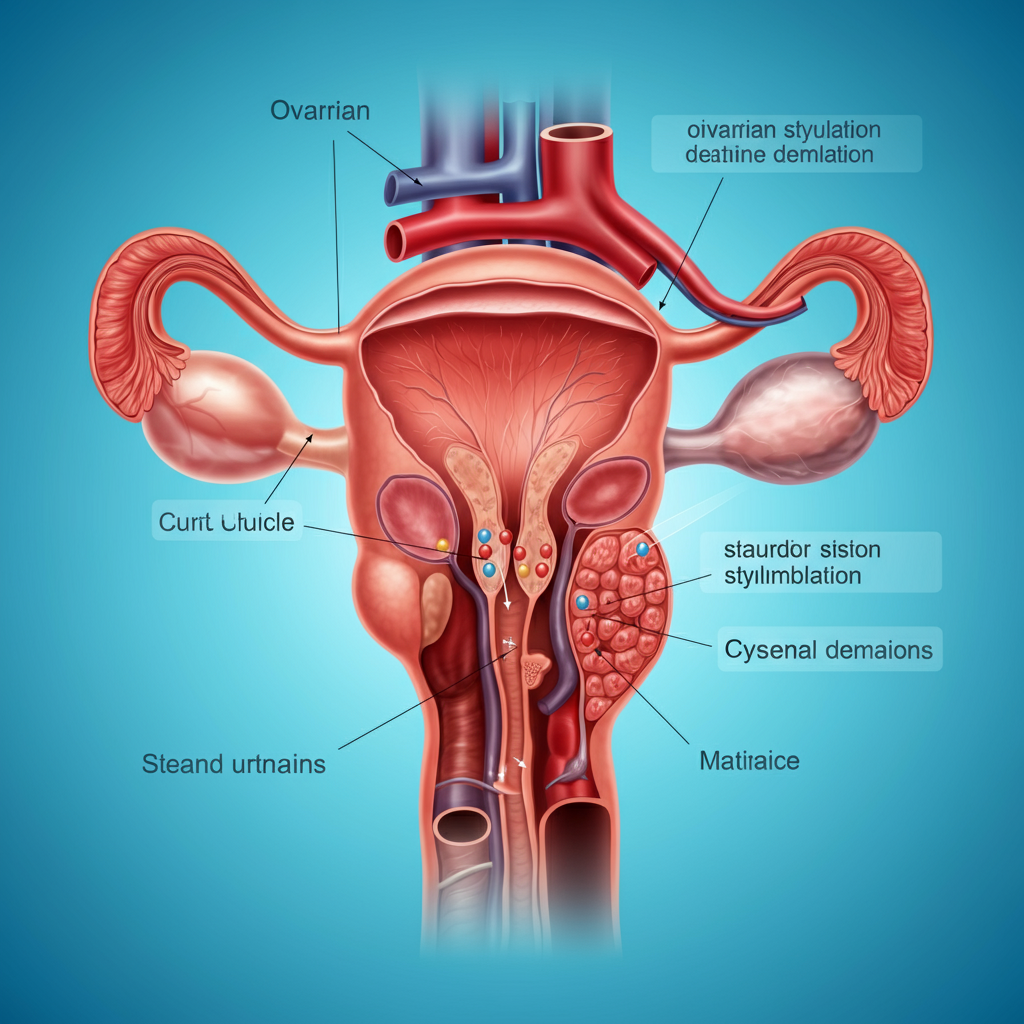
The decision to freeze your eggs can be life-changing, providing a sense of control and flexibility over family planning. Whether you’re focused on your career, awaiting the right partnership, or want to preserve your fertility, egg freezing (oocyte cryopreservation) is an empowering solution. However, before moving forward, it’s essential to understand the financial commitment involved. From the initial procedure to annual storage fees, we’re breaking down the key costs, factors, and tips to help you make an informed decision.
Table of Contents
What Is Egg Freezing and Why Do People Choose It?
Egg freezing involves retrieving and preserving a woman’s eggs to be used at a later stage for in-vitro fertilization (IVF). This process has gained popularity in recent years due to advancements in reproductive technology and changing life priorities.

Common Reasons for Egg Freezing:
- Career Goals: Many women choose to postpone motherhood in favour of professional growth.
- Medical Reasons: Those undergoing treatments like chemotherapy, which may impact fertility, often opt to freeze their eggs.
- Delayed Partnership: It offers flexibility for individuals waiting to meet the right partner.
But while its benefits are significant, understanding the costs upfront is crucial for proper financial planning.
Understanding the Costs of Egg Freezing
The cost to freeze your eggs can vary widely depending on where you’re located and the clinic you choose. Below, we’ve outlined the significant expenses associated with this process:
1. Initial Consultation
Before beginning the egg-freezing process, you’ll likely need an initial consultation with a fertility specialist. During this visit, you’ll receive an evaluation of your ovarian reserve through blood tests and ultrasounds.
- Cost: $200–$600 (sometimes included in package deals).
2. Ovarian Stimulation

To retrieve multiple eggs, you’ll undergo ovarian stimulation using hormone injections for 10–14 days. This step ensures you produce enough mature eggs for freezing, but fertility medications can be pricey.
- Cost:
- Medications: $3,000–$6,000
- Monitoring (ultrasounds and bloodwork): $1,000–$1,500
3. Egg Retrieval Procedure
Retrieving eggs is an outpatient surgical procedure typically performed under anaesthesia. A specialized needle is used to extract eggs from the ovaries.
- Cost: $4,500–$7,000 per cycle.
4. Freezing and Initial Storage
After retrieval, the mature eggs are vitrified (quickly frozen) and stored in a cryogenic facility. Some clinics include a year or two of storage in their standard package.
- Cost:
- Freezing Fee: $1,000–$2,000
- First-Year Storage: Often included or $300–$1,000 annually.
Recurring Costs to Keep in Mind
While the initial egg-freezing process accounts for the bulk of the expense, you’ll also need to budget for ongoing storage fees and future usage costs.
1. Annual Storage Fees
After your first year, most clinics or storage facilities charge annual fees to keep your eggs preserved in optimal conditions.
- Cost: $300–$1,000 per year.
2. Thawing and Fertilization (Future Costs)
When you decide to use your frozen eggs, additional costs for thawing, fertilization, and embryo transfer will arise. These steps are part of the IVF process.
- Cost:
- Thawing and Fertilization: $3,000–$5,000
- Embryo Transfer: $2,000–$4,000
Factors Affecting the Cost of Egg Freezing
The final cost of freezing eggs depends on several variables, including:
- Location: Pricing varies significantly between states and countries.
- Clinic Reputation: Prestigious clinics often charge higher fees.
- Number of Cycles Needed: Some women require multiple cycles to retrieve enough eggs for preservation.
- Age: Younger women may produce more eggs per cycle, reducing the need for additional rounds.
It’s worth noting that many clinics now offer package deals, which can reduce overall costs if multiple cycles are needed.
Does Insurance Cover Egg Freezing?

Unfortunately, egg freezing is often considered an elective procedure, meaning many insurance plans don’t cover it. However, there are exceptions:
- Employer Benefits: Some progressive employers (such as tech companies) now offer fertility benefits, including egg freezing. Check with your HR department for details.
- Medical Necessity: If egg freezing is required due to a medical condition (e.g., cancer treatment), it may fall under insurance coverage.
We recommend checking your commercial health insurance policy to see if fertility preservation benefits are included.
Financing Options for Egg Freezing
If the upfront cost feels overwhelming, don’t worry—many clinics and financial providers offer options to make egg freezing more affordable.
1. Payment Plans
Some fertility clinics allow you to break down the cost into monthly payments, reducing the financial strain.
2. Bundles and Discounts
Look for clinics offering discounted packages for additional cycles or bundled services (e.g., retrieval, storage, and medications).
3. Fertility Grants
Organisations such as the Baby Quest Foundation and the Livestrong Fertility Program offer grants to individuals seeking to preserve their fertility.
4. Health Savings Accounts (HSAs) or Flexible Spending Accounts (FSAs)
If you have an HSA or FSA as part of your health insurance plan, you can use it to pay for eligible fertility expenses tax-free.
Tips for Navigating Egg Freezing Costs
- Do Your Research: Compare clinics and their pricing structures before making a commitment.
- Consult a Financial Counselor: Many fertility clinics offer financial counselling sessions to help you understand your options.
- Plan for Future Costs: Factor annual storage and IVF expenses into your decision.
Is Egg Freezing Worth the Cost?
While egg freezing is undoubtedly a significant financial investment, for many women, it provides invaluable peace of mind and control over their reproductive future. Whether it’s worth it depends on your personal goals, finances, and health considerations.
If you’re considering the process, speak with a fertility specialist and explore all your options for making it financially manageable. Remember, with proper planning and support, you can make this empowering choice a reality.
FAQ’s
Q 1: What is egg freezing?
A: Egg freezing, also known as oocyte cryopreservation, is a method of preserving a woman’s eggs for future use. This involves retrieving mature eggs from the ovaries and freezing them in subzero temperatures to maintain their viability.
Q 2: Who can benefit from egg freezing?
A: Egg freezing is an option for women who wish to delay pregnancy due to personal or medical reasons, such as career goals, health concerns, or lack of a suitable partner. It can also be beneficial for those undergoing medical treatments that may affect their fertility.
Q 3: How does the process work?
A: The process typically starts with ovarian stimulation through hormon
